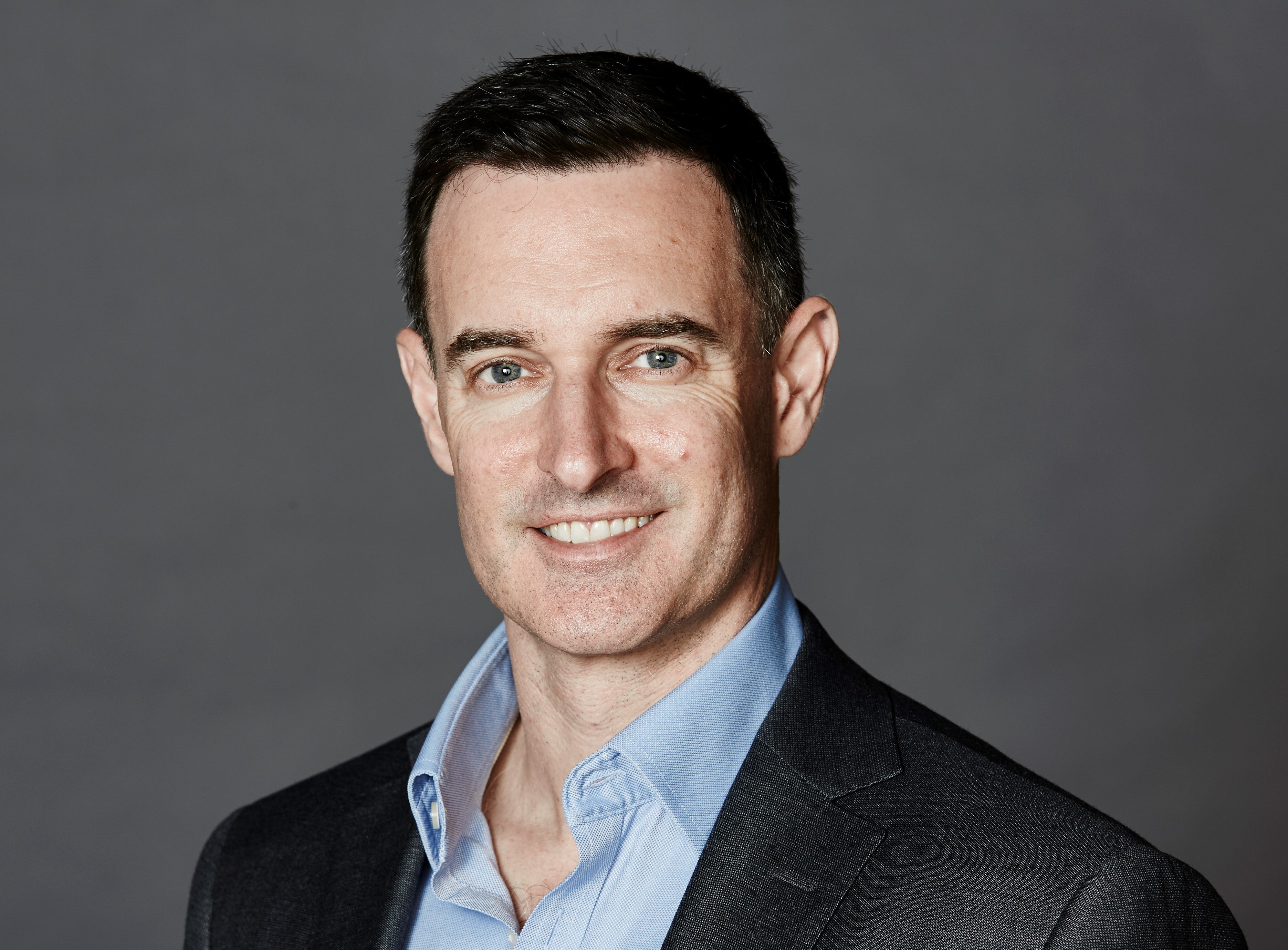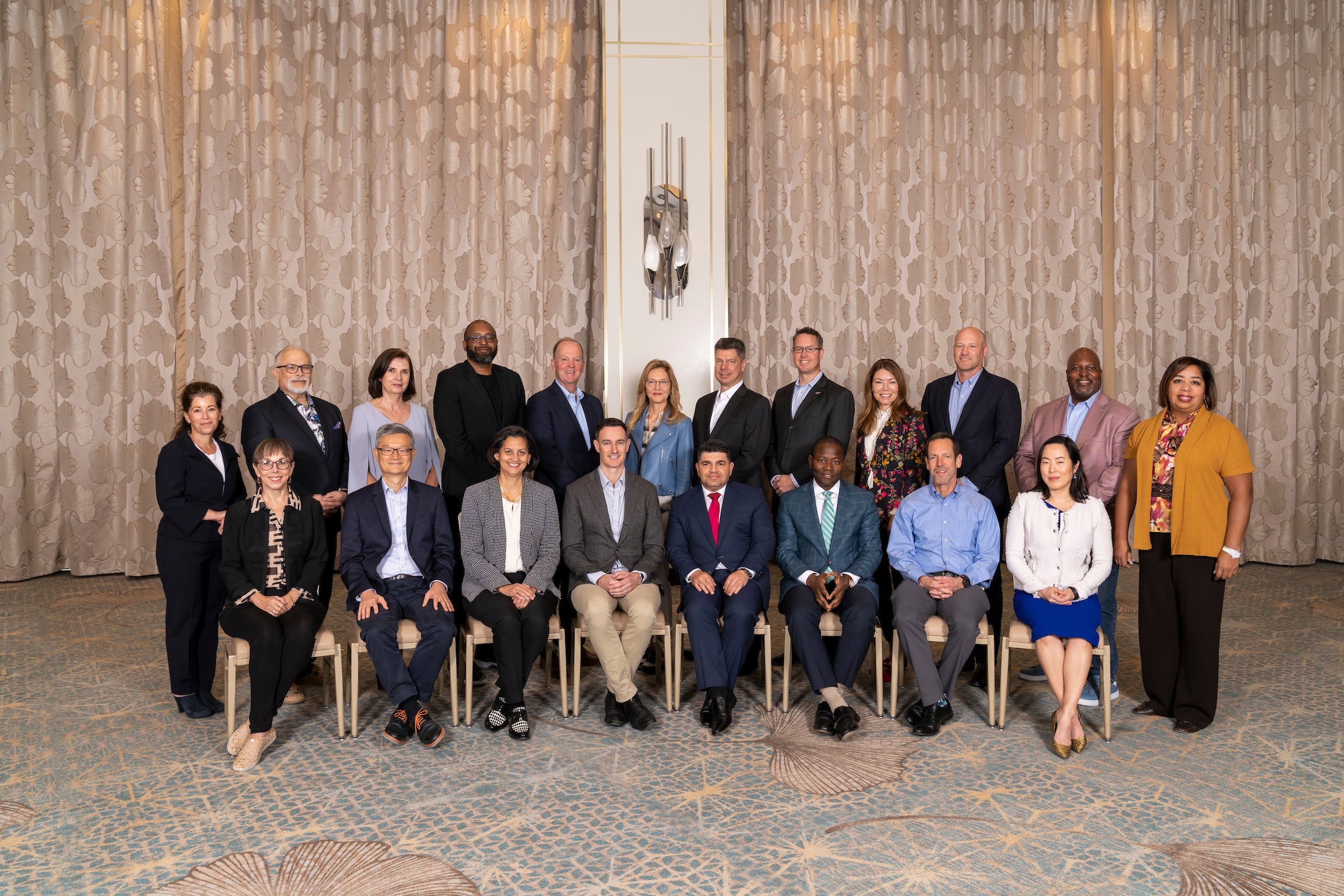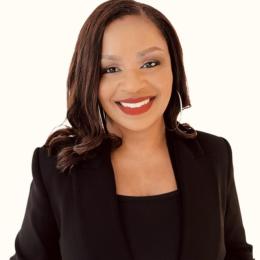ACC’s newly appointed chair of the global board of directors, Adrian Goss, general counsel, Audio and UK Publishing at Bauer Media, has been a member of ACC since 2003. Committed to advancing the role of in-house counsel and ACC, Adrian has held several leadership positions with the association, including chair of the ACC Australia board. Here, he talks about his path to in-house practice, his current roles as general counsel and global board chair, what he hopes to help ACC accomplish in the coming year, and what he sees as the biggest challenges and opportunities for corporate counsel.
Career: An in-house journey

Tiffani Alexander (Tiffani): What led you to pursue a career in law, and more specifically, to in-house practice?
Adrian Goss (Adrian): During my legal studies, I became increasingly interested in legal issues as they impact the media. By the time I graduated, I was focused on finding a law firm role that enabled me to really engage with those issues. My training was under the old articles of clerkship system, and I was fortunate to be articled to a terrific partner with a practice based around the film, television, and digital media sectors. I’ve never looked back and have held a number of roles across media over more than 20 years of practice.
I made the move in-house after about five years of law firm experience, with a client of the firm that I was working with. I sensed that the most interesting legal work in the media sector was being done in media companies and not in the firms and that I preferred to be closer to the business, rather than advising from the outside.
I sensed that the most interesting legal work in the media sector was being done in media companies and not in the firms and that I preferred to be closer to the business, rather than advising from the outside.
Adrian Goss
Tiffani: How have previous roles prepared you for your current position as general counsel for Bauer Media’s Audio and UK Publishing businesses? And further, how has ACC aided in your transition from Australia to the United Kingdom?
Adrian: The audio sector creates a whole range of new and interesting legal challenges for me but builds on my experience across the film, television and print and digital publishing industries. The fundamentals of good in-house practice, though, remain constant — enabling the team to do its best work, building trust with the business, and ensuring that the right processes are in place to effectively manage workload, knowledge, and costs.
ACC creates amazing networks between in-house lawyers around the world. There’s a strong, active, and growing chapter in Europe with many members across the United Kingdom. Those connections have enabled me to quickly tap into London and start building my own networks. One of the most important functions of ACC is creating communities — at both a local and global level — that facilitate sharing of experiences and challenges.
The path to ACC
Tiffani: When did you first learn of ACC, and what made you want to get involved with the association?
Adrian: With my first in-house role, I had moved from Melbourne to Sydney and joined a relatively small team. The general counsel of that team was a strong advocate for ACC, and the entire team were members. So at least initially, it wasn’t a conscious decision on my part. ACC has a strong presence in the Sydney in-house community, and it quickly became apparent to me what a terrific group — from both a personal and professional perspective — it was.
My experience of moving from a law firm to in-house was, I think, fairly typical, in that I loved the new environment in which I was working, and the proximity to the business, but missed the camaraderie of the law firm. I suspect that sense is particularly pronounced in smaller in-house teams. I was also in a new city and looking to build my connections. ACC addressed those needs in a very powerful way.
Tiffani: You’ve been involved with ACC for many years, volunteering at the chapter level, eventually becoming a member of both your local and the global board of directors. How did you come to leadership positions with the association? Further, how has ACC membership aided in your overall career?
Adrian: With any membership organization, the more you put in the more you get out. Through the networking and CLE events that ACC organized I met some of the local chapter leadership, liked what they were doing, and wanted to get involved. As I’ve mentioned, it’s a really strong and supportive group in Sydney, and I became heavily involved in planning events and implementing advocacy and other initiatives. It all grew from there. I was privileged to have the opportunity to move into leadership positions and relished those opportunities.
My experience of moving from a law firm to in-house was, I think, fairly typical, in that I loved the new environment in which I was working, and the proximity to the business, but missed the camaraderie of the law firm. I suspect that sense is particularly pronounced in smaller in-house teams. I was also in a new city and looking to build my connections. ACC addressed those needs in a very powerful way.
adrian goss
Membership (and holding leadership positions) has aided my career in many ways. The network is genuinely powerful from the perspective of hearing about new roles. I’ve personally benefited from that and seen numerous examples of others who have as well, especially when it comes to changing roles and progressing in their careers. Being regularly exposed to and involved in thought-leadership in the in-house space has also equipped me to engage with relevant issues in an informed way, with an understanding of how those issues are being tackled by other teams. The opportunity to serve on boards with other talented in-house lawyers and work with ACC’s exceptional management has also been invaluable in terms of real-world governance experience from a director’s perspective.
ACC Global Board Chair
Tiffani: What does it mean to you to be elected chair of the ACC board?
Adrian: It’s a huge privilege. The caliber of the people who sit on the board is extraordinary and it’s humbling to have the opportunity to lead the ACC board. I’m excited about that opportunity.

Tiffani: As the incoming ACC chair, what are your objectives? Where would you like to see ACC next year?
Adrian: We’ve just reached the end of our last five-year strategic plan and are finalizing a strategic plan, SP 3.0, to guide us through the next three years. From a board perspective, the top priority is to ensure that the organization is well-placed to build on its success through SP 3.0. That entails making sure the organization has the right resources and budgetary settings and the right metrics to measure success and know when to course correct, if necessary. So, bedding that in will be the principal focus of the board over the next year.
…we’re entering an economic cycle that will be challenging... many of the businesses we work for are facing a highly uncertain environment. We’re likely to see more of our members in transition as the jobs market tightens, and we know that in-house teams are going to face the same budgetary pressures that our colleagues in other departments are facing. We need to ensure that we are appropriately supporting our members through those challenges.
adrian goss
Tiffani: When you think about leading the ACC board through the coming year, what aspect of that role excites you the most? And on the other hand, what do you think will be your biggest challenges?
Adrian: After a challenging couple of years due to the impacts of COVID, we’re in a good position for growth, and I’m excited about what we can deliver to members in the post-COVID world. We’ve come out of that period in a strong financial position and that is allowing us to invest in technology to enable us to better connect with our members in a more remote environment. Our most recent Annual Meeting in Las Vegas was a great showcase for that with its greater focus on using technology to amplify in-person events to our global audience and have parallel streams catering to those of our members who couldn’t be there in person. There’s so much that we can do with the new technology tools available to us, and I’m really looking forward to leveraging those tools to improve the member experience.
Having said that, we’re entering an economic cycle that will be challenging for other reasons. With talk of recession in many jurisdictions, ongoing supply chain challenges, climate change impacts, and the war in Ukraine, many of the businesses we work for are facing a highly uncertain environment. We’re likely to see more of our members in transition as the jobs market tightens, and we know that in-house teams are going to face the same budgetary pressures that our colleagues in other departments are facing. We need to ensure that we are appropriately supporting our members through those challenges.
Challenges of the day and advice for in-house counsel
Tiffani: Speaking of challenges, what do you consider to be the biggest challenge facing in-house counsel today?
Adrian: The perennial response to that question is the ever-increasing regulatory burden that our members are attempting to deal with. There seems to be an unrelenting growth in that burden with a lag in the resourcing required to effectively respond to it.
There are also some fascinating questions around legal department management in the post-COVID world. We know how much COVID accelerated changes to remote working and technology-enabled collaboration, and we’re still coming to grips with how to best adapt to that within our legal teams. Every team is a little different in that regard, but we know that there are common themes. For example, many of our members are now working in entirely “hot desking” environments and only seeing many of their colleagues remotely. That presents interesting challenges for in-house teams.
For those new to ACC, get involved as much as you can and really explore the resources available to you.
adrian goss
Tiffani: What advice do you have for in-house counsel who are new to in-house practice? What about those new to ACC?
Adrian: For those new to in-house practice, the first thing they should do is join ACC. We provide resources and connections that will benefit them throughout their in-house career in a way that no other group can. For those new to ACC, get involved as much as you can and really explore the resources available to you. As I said earlier, the more you put in, the more you get out. For many of our members, that may mean connecting with their local chapter and getting involved in the events that the chapter holds. For all our members, including those who live in an area that is not served by a local chapter, get involved in the many online resources that we have, including networks.
Thank you, Immediate Past Chair Mike Madden
Tiffani: I understand you met Immediate Past Chair Mike Madden in 2014 during his first ACC Australia (then known as “ACLA”) board meeting. He spoke kindly of this meeting and highly of you, noting your insights on board service and the issues of the day. Any words for Mike as you accept the “proverbial torch”?
Adrian: I was fortunate to work with Mike for a number of years on the Australian board. He’s an exemplary board member and chair. On behalf of the ACC board and the membership, I thank him, as immediate past chair, for the excellent leadership role that he has played over the past year. His tenure was dominated by the challenges of COVID, and he led the board, largely remotely, in an admirable way throughout that period.




